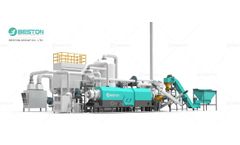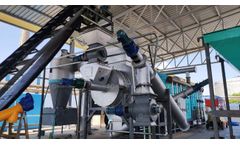Crop Yield Articles & Analysis: This-Year
6 articles found
This enables users to: Run pilot projects. Collect data on biochar yield. Test feedstock performance. Build proof-of-concept results before scaling up. 2. ...
Biochar can be used as an efficient soil conditioner in agricultural production to improve soil fertility and crop yield; it can also be used as a high-quality fuel in industrial boilers and civil heating. ...
Modern pyrolysis systems are designed to maximize the yield of biochar while minimizing energy consumption and emissions. Continuous pyrolysis reactors, for example, allow for more efficient processing of coconut shells and higher output, which increases the potential for profit.Advanced systems may also incorporate features like heat recovery, which helps reduce the amount of ...
By improving soil structure, water retention, and nutrient availability, biochar contributes to better crop yields. As a result, biochar can be sold to farmers looking to enhance their soil’s fertility. ...
When applied to soil, it enhances the soil’s structure, promotes microbial activity, and increases nutrient retention, leading to better crop yields. In addition to these benefits, biochar produced from manure-contaminated biomass litter can help mitigate the negative effects of excessive manure application. ...
Burning removes vital nutrients, such as nitrogen, phosphorus, and potassium, which are essential for crop growth. The loss of these nutrients can lead to reduced agricultural productivity, necessitating the use of synthetic fertilizers, which further contribute to environmental harm. ...






